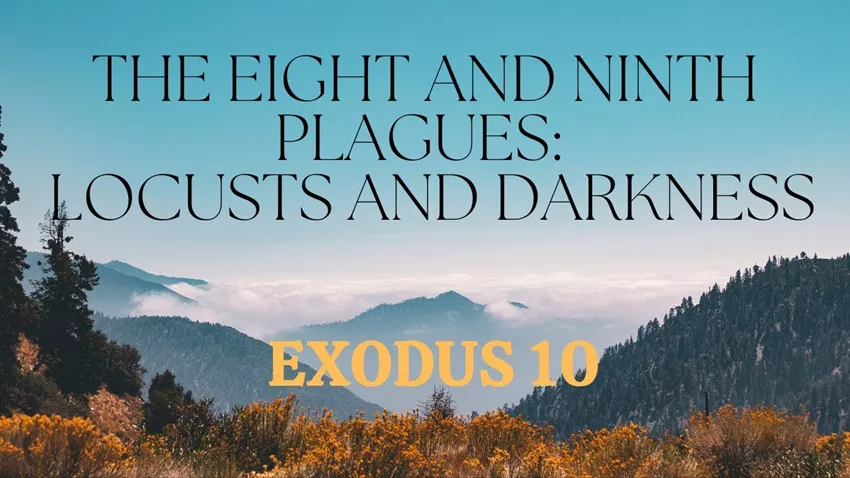Exodus Chapter 10 Summary
Exodus chapter 10 describes the eighth and ninth plagues sent by God upon Egypt as a consequence of Pharaoh‘s refusal to free the Israelites. The chapter begins with God commanding Moses and Aaron to confront Pharaoh once again, warning him of the impending locust plague. The locusts swarm across Egypt, destroying all crops, but Pharaoh’s heart remains hardened, and he refuses to repent.
In the ninth plague, a thick darkness covers the land for three days, yet the Israelites have light in their dwellings. Despite these miraculous signs, Pharaoh continues to harden his heart. This chapter highlights God’s power and Pharaoh’s stubbornness in the face of divine judgment.
Bible Exodus Chapter 10
Welcome to read Exodus Chapter 10. Here is the list of Exodus Chapter 10:
What Does Exodus Chapter 10 Teach Us?
1. The Consequences of Hardening One’s Heart
Pharaoh’s repeated refusal to heed God’s warnings serves as a powerful reminder of the consequences of hardening one’s heart. Despite witnessing God’s miraculous signs, Pharaoh continually resists repentance, choosing pride and self-reliance over humility and obedience. This teaches us that ignoring God’s guidance can lead to spiritual blindness and ultimately separation from God’s will.
2. God’s Power Over Creation
In this chapter, God demonstrates His dominion over the natural world by sending plagues of locusts and darkness. These signs remind us that God holds all of creation in His hands, able to command the elements at will. It reinforces the belief that nothing in the universe is beyond His control, and we are called to trust in His power, even when circumstances seem beyond our understanding.
3. God’s Patience and Mercy
Although Pharaoh repeatedly rejects God’s commands, God continues to offer him opportunities to repent. This reveals God’s patient nature and His willingness to give people time to change. Even in the face of repeated disobedience, God provides opportunities for repentance, demonstrating His mercy. It encourages us to never lose hope in God’s ability to soften hearts, including our own.
4. The Importance of Obedience to God
Moses and Aaron faithfully carry out God’s commands despite Pharaoh’s opposition. Their unwavering obedience serves as an example for us to follow. God’s will is often not easy to follow, but obedience is essential. Just as Moses trusted God to bring about His purpose, we are called to trust and obey His leading in our lives, even in the face of difficulties.
5. The Warning Against Partial Obedience
Pharaoh’s offer to let the Israelites go but not take their families or livestock illustrates the danger of partial obedience. When we follow God’s commands, it must be complete, not selective. God calls us to wholehearted obedience, not compromises or half-measures. Partial obedience can lead to missed blessings and unfulfilled purposes.
Related topics:


